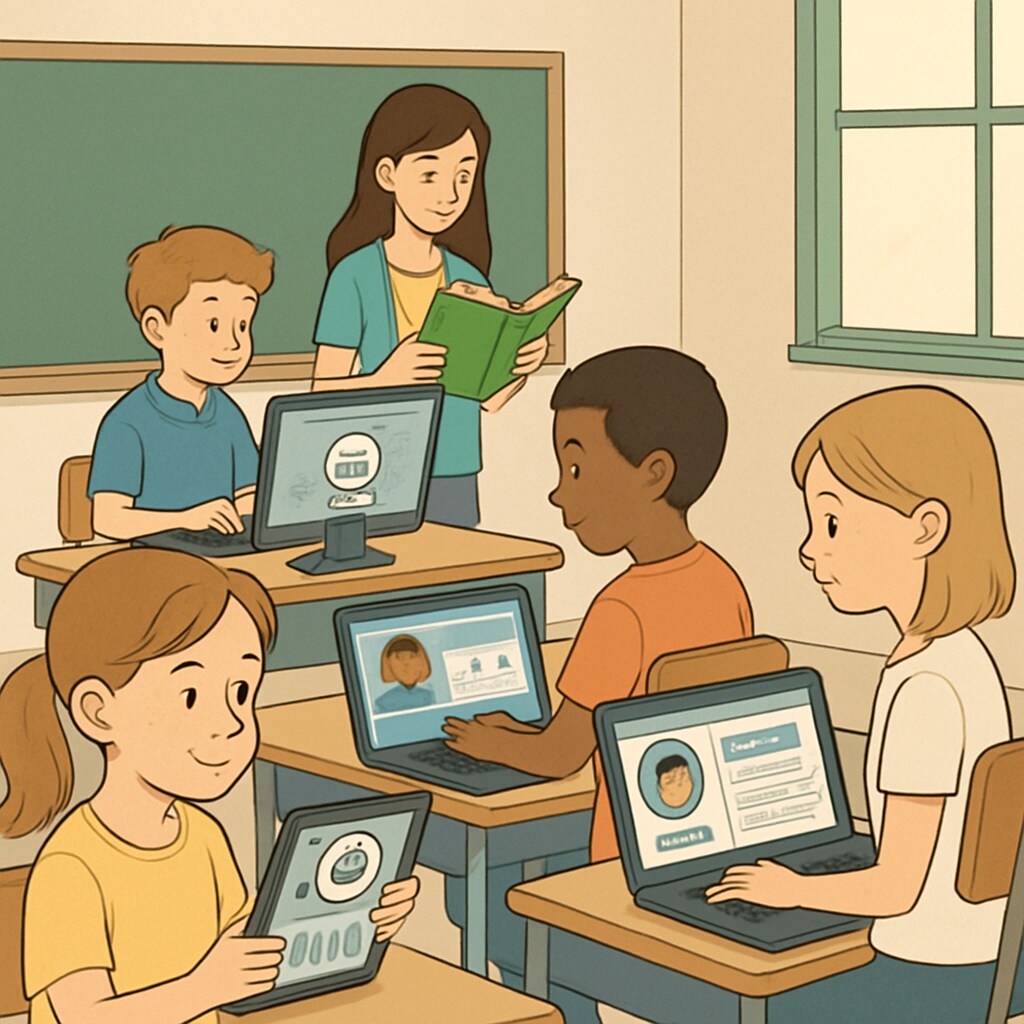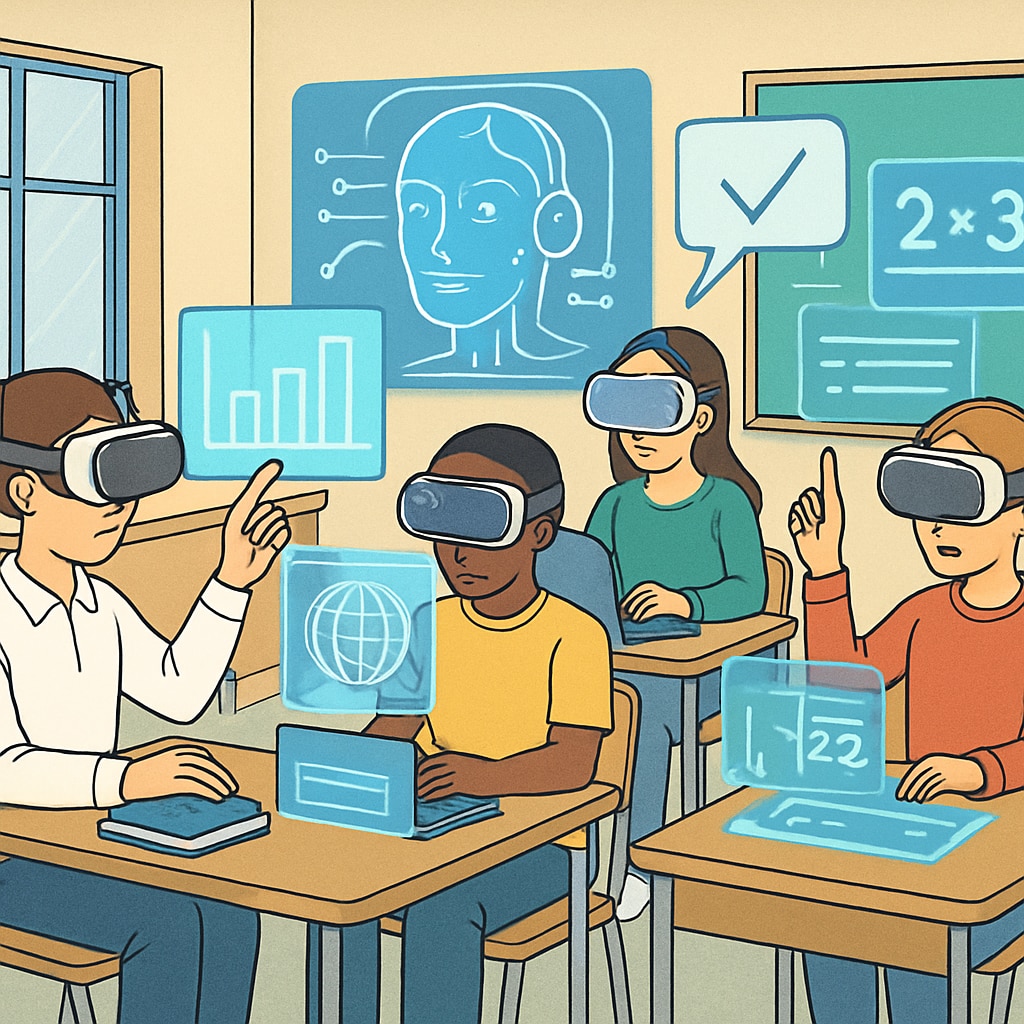The integration of artificial intelligence, school education, and future impact is rapidly transforming how K12 education operates. Within the next 5-10 years, AI is expected to redefine teaching methods, personalize learning experiences, and optimize evaluations, marking a pivotal revolution in the traditional classroom environment. As educators and policymakers navigate these changes, the opportunities to leverage AI for better learning outcomes and operational efficiency are immense.
How AI is Revolutionizing Teaching Methods
Artificial intelligence is enabling teachers to move beyond traditional, one-size-fits-all approaches. By introducing intelligent tutoring systems, educators can tailor lessons to individual students’ needs. For instance, AI-powered platforms like adaptive learning applications analyze each student’s progress and suggest personalized resources to address gaps in understanding. This shift allows teachers to focus more on creative and critical thinking exercises, while AI handles repetitive tasks like grading and content delivery.
- Automated grading systems save teachers time and ensure consistency.
- AI-driven lesson planning tools recommend content based on real-time data analysis.
- Intelligent tutors provide instant feedback and guidance to students.
Moreover, AI assists with identifying learning challenges early. By analyzing behavioral patterns and academic performance, predictive analytics can flag potential issues, enabling timely intervention.

Enhancing the Learning Experience Through AI
Artificial intelligence is revolutionizing the way students engage with educational content. Virtual and augmented reality technologies, powered by AI, transport students to immersive learning environments. For example, history lessons can transform into virtual tours of ancient civilizations, while science classes may include 3D models of molecules for interactive exploration.
Additionally, conversational AI tools, such as chatbots, offer students instant assistance with homework or subject queries, fostering a more interactive and responsive learning experience. These innovations not only make learning more engaging but also empower students to take ownership of their education.
Key benefits include:
- Access to interactive simulations and gamified learning modules.
- Real-time feedback to encourage self-paced learning.
- Enhanced engagement through storytelling and visual elements.
As a result, AI is shifting the focus from rote memorization to experiential and skill-based learning, preparing students for the challenges of the 21st-century workforce.

Transforming Assessment and Evaluation
Traditional methods of assessment often fall short in capturing a student’s true potential. Artificial intelligence introduces dynamic evaluation systems that assess not only academic performance but also soft skills like creativity, collaboration, and critical thinking. AI-powered tools can analyze written assignments, presentations, and even group interactions to provide holistic feedback.
For educators, this means an opportunity to move away from standardized testing and towards competency-based evaluations. AI systems can also suggest tailored interventions for struggling students, ensuring no one is left behind.
Moreover, these systems offer transparent analytics, giving educators and parents a deeper understanding of students’ progress. This data-driven approach fosters accountability and aligns educational goals more effectively.
Opportunities and Challenges for Educators
While the benefits of AI in education are clear, educators face challenges in adapting to this new paradigm. Professional development programs will be crucial in equipping teachers with the skills needed to work alongside AI technologies effectively.
Key considerations for educators include:
- Adapting to AI tools without compromising human connection.
- Ensuring ethical use of AI in classrooms, particularly in data privacy.
- Collaborating with policymakers to establish standardized AI practices.
As a result, educators must embrace lifelong learning and adaptability to remain effective leaders in this AI-driven educational landscape.
Conclusion: The integration of artificial intelligence into K12 education is inevitable and exciting. By reshaping teaching methods, enhancing learning experiences, and transforming assessments, AI promises to elevate education to new heights. However, it is essential for educators, administrators, and policymakers to approach this transformation thoughtfully, ensuring equitable access and ethical implementation. As we look ahead, the collaboration between humans and machines will be the cornerstone of a more innovative, inclusive, and impactful educational system.
Readability guidance: This article uses short paragraphs and lists to improve readability. The content is written in active voice with a focus on clarity, ensuring that technical concepts are accessible to a wide audience. Images are strategically incorporated to enhance understanding.


